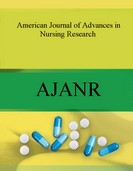Abstract
Title
NEEDS, CONCERNS AND LEVEL OF DISTRESS AMONG PATIENTS UNDERGOING PALLIATIVE CARE IN A SELECTED RURAL AREA, PATHANAMTHITTA DISTRICT, KERALA
Author
Beena Mathew Bhasan, Remya Varghese*, Riya Rachel George, Sunu P Abraham
Email
remyaavu@gmail.com
keyword
Needs,
Concerns, Level of
distress, Palliative care
patients.
Abstract
Palliative care is an approach that improves the quality of life of patients and their families
who are facing the problem associated with life threatening illness, through the prevention
and relief of suffering by means of early identification and impeccable assessment and
treatment of pain and other problems. Assessment of needs, concerns and distress of
palliative care patients is important as it affects their overall health. During our Community
Health Nursing posting we identified that many patients who are receiving palliative care
in their homes are suffering from physiological as well as psychological discomfort and in
most of the houses, family members are considering the terminally ill as a burden. From
this experience, we identified that it is essential to assess the needs, concerns and level of
distress among patients undergoing palliative care. A quantitative non experimental
research study was conducted to assess the needs, concerns and level of distress among
patients undergoing palliative care in a selected rural area, Pathanamthitta district. This
study is based on General systems theory by Von Ludwig Bertalanffy (1968). A total of 60
palliative care patients were selected as participants using purposive sampling technique.
The tools used were baseline variable proforma, NEST interview schedule, and concern
checklist and distress thermometer. The validity and reliability of the tools were established
by using split half method and was further computed using Spearman‟s Brown Prophecy
formula and was found to be reliable. The „r‟ value for NEST interview was 0.78, Concerns
checklist was 0.83 and Distress thermometer was 0.9 respectively. The results revealed that
majority of palliative care patients, [190(79%)] had negative experience on need, 45(75%)
of them had moderate level of concerns and 49(81.66%) had highest level of distress.
There was a significant association between need scores of palliative care patients and
selected baseline variable i.e., diagnosis (ï£2=8.19,p<0.05). There was a significant positive
correlation existing between needs and level of distress of palliative care patients ( r =0.4)
and concerns and level of distress of palliative care patients (r=0.6) at p<0.05 level of
significance. It was concluded that the level of distress of palliative care patients increase
as their needs and concerns increase. Hence the palliative care patients of Ayroor
Panchayat, Pathanamthitta district need various interventional strategies to maintain their
quality of life. This will encourage strict adherence to proper implementation of palliative
care especially in rural area.













